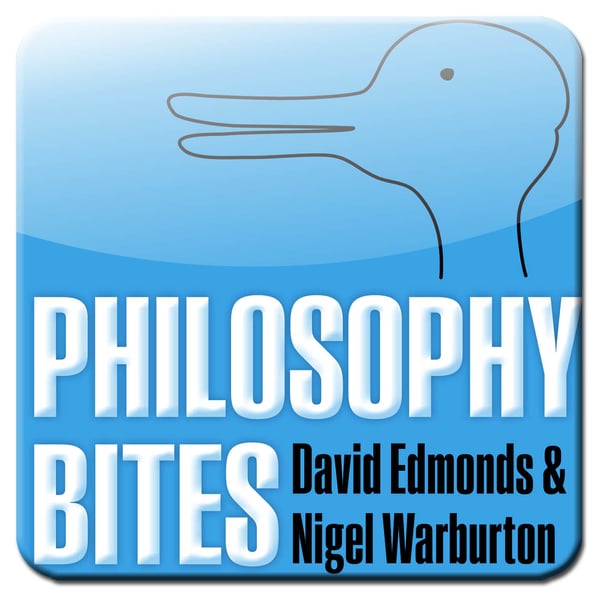Michael Lamb on Augustine on Hope
Philosophy Bites
Nigel Warburton
4.6 • 2K Ratings
🗓️ 16 October 2023
⏱️ 19 minutes
🧾️ Download transcript
Summary
Augustine is usually described as a pessimist with a bleak view of human evil and corruption. Michael Lamb thinks that is a simplistic reading. Augustine has interesting things to say about hope as a virtue.
Transcript
Click on a timestamp to play from that location
| 0:00.0 | This is Philosophy Bites with me, Nigel Warburton and me, David Edmunds. |
| 0:07.7 | If you enjoy Philosophy Bites, please support us. We're currently unfunded and all donations |
| 0:12.5 | would be gratefully received. For details go to www.philosophybites.com |
| 0:18.8 | Saint Augustine, a Christian bishop and theologian who lived between the 4th and 5th century, |
| 0:23.5 | is well known as a pessimist. Michael Lamb is the author of a book on Augustine's |
| 0:28.9 | political thought. He says that there's a much more positive side to Augustine. |
| 0:33.6 | What's often missed in Augustine is his strongly developed ideas about hope. |
| 0:38.2 | Michael Lamb, welcome to Philosophy Bites. Thanks for having me. The topic we're going to |
| 0:43.8 | focus on today is Augustine on hope. Before we get into the hope, could you just briefly say who |
| 0:50.8 | Augustine was? So Augustine Hippo was a famous Christian bishop and theologian who lived in North |
| 0:56.8 | Africa in the 4th and 5th centuries of Roman Empire. He was an active citizen, a leader in the |
| 1:02.1 | Christian Church, but also a profound and prolific author. He wrote 100 books including his famous |
| 1:07.4 | book The Confessions in the City of God and his influence really expanded across political thought |
| 1:12.8 | from the medieval ages onto our contemporary moment. I think it's fair to say that the flavor that |
| 1:19.5 | people are left with from his writing is one of a kind of corrupted humanity, a dark vision of |
| 1:26.0 | what people do to one another. He's often known as one of the great pessimists of the West. |
| 1:31.2 | John Rawls, a famous philosopher, said he was one of two dark minds in Western thought and so |
| 1:36.2 | much of his writing does suggest that human beings are naturally corrupt. We have a desire for |
| 1:41.9 | pride and self-gory that we pursue and often that desire for glory leads us to dominate other people |
| 1:48.1 | and so he's very attuned to the ways in which human beings, corrupted by pride, might seek power |
| 1:53.6 | over others and so he's known for giving a very acute analysis of social and political evils which |
| 1:59.2 | often leads people to think he's a pessimist about the world and about politics and what I really |
... |
Please login to see the full transcript.
Disclaimer: The podcast and artwork embedded on this page are from Nigel Warburton, and are the property of its owner and not affiliated with or endorsed by Tapesearch.
Generated transcripts are the property of Nigel Warburton and are distributed freely under the Fair Use doctrine. Transcripts generated by Tapesearch are not guaranteed to be accurate.
Copyright © Tapesearch 2025.

